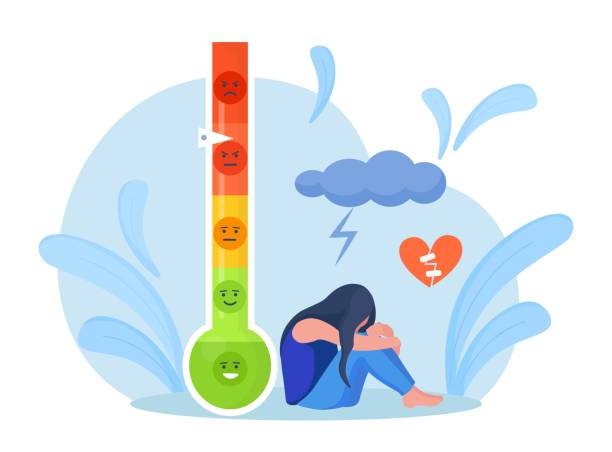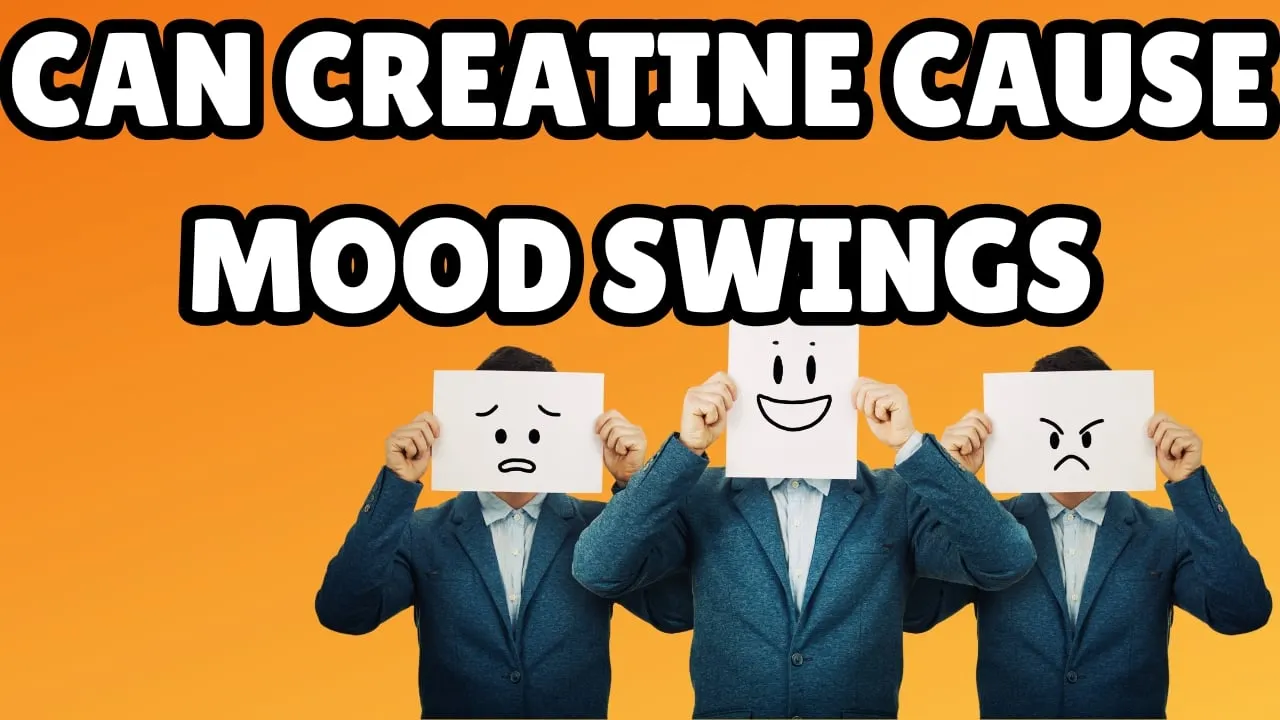Can Creatine Cause Mood Swings? Effect of Creatine Supplementation on Brain Health and Mood
Can Creatine Supplementation Cause Mood Swings?
Creatine supplementation has long been associated with improved athletic performance, muscle recovery, and even cognitive benefits. But could it also impact your mood?
Some users have raised concerns about potential mood swings linked to creatine use.
This article explores the connection between creatine and mood changes, diving into the science to provide clarity and evidence-based insights.

Article Outline
What is Creatine and How Does it Work?
- Explanation of creatine as a naturally occurring compound stored in your muscles.
- Overview of how creatine monohydrate supplementation enhances energy production and brain function.
The Benefits of Creatine Beyond Muscle Mass
- How creatine improves cognitive function and brain health.
- Positive effects of creatine supplementation on mental fatigue and memory.
Can Creatine Affect Mood?
- Examining the relationship between creatine intake and neurotransmitter production.
- Research exploring whether creatine may affect mood by influencing dopamine and serotonin levels.
What Do Studies Say About Creatine and Mood Disorders?
- Highlighting studies on creatine supplementation in women with major depressive disorder.
- Evidence to suggest that creatine may alleviate symptoms associated with low serotonin.
Creatine’s Impact on Brain Health
- Connection between creatine supplementation and improved blood flow and oxygen delivery to brain cells.
- How creatine may help manage mood by supporting cognitive function.
Could Creatine Cause Negative Mood Changes?
- Addressing reports of negative effects and mood swings.
- Potential explanations for adverse effects, such as hormonal changes or over-supplementation.
Who Might Be at Risk of Mood Swings with Creatine Use?
- Factors like underlying mental health conditions or sensitivity to neurotransmitter fluctuations.
- Specific groups who should consult a doctor before taking creatine supplements.
How to Monitor Your Mood While Taking Creatine
- Tips for tracking mood changes and identifying symptoms associated with creatine use.
- When to consider stopping creatine supplementation.
Practical Tips for Safe Creatine Use
- Recommendations for creatine dosage to minimize potential side effects.
- Importance of combining creatine with a balanced diet and proper hydration.
Summary: What Does the Science Say?
- Recap of the relationship between creatine and mood swings.
- Final verdict on whether creatine supplementation is safe for most users.

1. What is Creatine and How Does it Work?
Creatine is a compound naturally produced in the body and stored in your muscles. It plays a key role in energy production by replenishing adenosine triphosphate (ATP), your body’s main energy currency.
When you take creatine monohydrate, you enhance your muscles' and brain’s ability to generate energy quickly.
Learn more about how creatine works and why it’s popular among athletes and cognitive researchers alike.
2. The Benefits of Creatine Beyond Muscle Mass
While creatine is well-known for improving muscle mass and strength, it also offers cognitive benefits.
Research suggests that creatine supplementation may improve cognition and memory by supporting brain cells during mental fatigue.
The delivery of creatine phosphate to brain cells can enhance overall brain health.

3. Can Creatine Affect Mood?
There’s growing interest in whether creatine may affect mood by influencing brain neurotransmitters like dopamine and serotonin.
These chemical compounds produced in your brain are responsible for feelings of motivation and pleasure.
Curious about whether creatine makes you angry?
Some studies suggest that creatine could potentially improve symptoms associated with depression by regulating neurotransmitter levels.
4. What Do Studies Say About Creatine and Mood Disorders?
Studies involving women with major depressive disorder have shown that creatine supplementation may help alleviate symptoms associated with low serotonin levels.
Chronic creatine supplementation has also been linked to improvements in cognitive function, which can positively affect mood.

5. Creatine’s Impact on Brain Health
Creatine improves blood flow and oxygen delivery to brain cells, which is crucial for optimal brain function.
This effect of creatine supplementation helps reduce mental fatigue and enhances the brain’s capacity to manage mood and cognitive function.
Creatine monohydrate is often regarded as one of the best forms for this purpose.
6. Could Creatine Cause Negative Mood Changes?
Although creatine has potential benefits, some users report mood swings or negative effects.
Could creatine supplementation side effects like dehydration or excessive intake contribute? These adverse effects are rare and typically mild.

7. Who Might Be at Risk of Mood Swings with Creatine Use?
Individuals with pre-existing mood disorders or neurological conditions may be more sensitive to changes in neurotransmitter levels caused by creatine.
Choosing the right type of creatine and consulting a healthcare provider is recommended for those with mental health concerns.
8. How to Monitor Your Mood While Taking Creatine
To ensure safe use, keep a journal to track any mood changes. If symptoms associated with depression or negative mood persist, consider stopping creatine supplementation and seeking medical advice.
Learn more about how creatine supplementation fits into your lifestyle.

9. Practical Tips for Safe Creatine Use
- Stick to the recommended dosage of 3-5 grams per day.
- Combine creatine with a nutrient-rich diet and adequate hydration.
- Avoid over-supplementation to prevent negative effects.
Looking for the best form of creatine?
Read this guide on creatine HCL vs. monohydrate to help decide.
10. Summary: What Does the Science Say?
Creatine supplementation has numerous benefits for brain health, cognitive function, and mood support.
Rare cases of mood swings may occur but are generally preventable with proper use.
Overall, creatine is safe and effective for most people.
Key Takeaways
- Creatine supports brain health and cognitive function.
- It may improve symptoms associated with low dopamine and serotonin levels.
- Rare adverse effects like mood swings can occur, but these are typically mild and manageable.
- Consult a doctor if you have pre-existing mood disorders or experience significant mood changes.
- Stick to recommended dosages and maintain a healthy lifestyle for best results.
References
- Rae, Caroline, et al. “Dietary Supplementation with Creatine Monohydrate Improves Brain Performance in Older Adults.” Nature Neuroscience, vol. 6, no. 9, 2003, pp. 753–759. Nature.
- Allen, Patricia J. “Creatine Supplementation and Cognitive Function.” Journal of the International Society of Sports Nutrition, vol. 9, no. 1, 2012, pp. 1–8. PMC.
- Renshaw, Perry F., et al. “Creatine Supplementation in Depression: A Pilot Study.” Psychiatric Times, 2006. Psychiatric Times.
- Bender, Aaron, et al. “Creatine as a Potential Therapeutic Agent for Bipolar Disorder.” Psychology Today, 2023. Psychology Today.
- Kondo, Douglas G., et al. “Two Cases of Mania Following Creatine Supplementation.” Journal of Psychiatric Research, vol. 44, no. 4, 2010, pp. 213–217. PMC.
- Allen, Patricia J. “Sex-Dependent Effects of Creatine Supplementation on Depression-Like Behavior in Rodents.” Nature Neuroscience, vol. 10, no. 3, 2009, pp. 345–351. Nature.
For More Training Advice + Diet and Lifestyle visit us Combat Creatine
PS: Make sure you check out the rest of our Training Guides:
Creatine
Creatine Supplements Ultimate Guide
Creatine Supplementation Side Effects
Best Creatine Monohydrate Gummies Review: Top 10 Best Creatine Gummies












